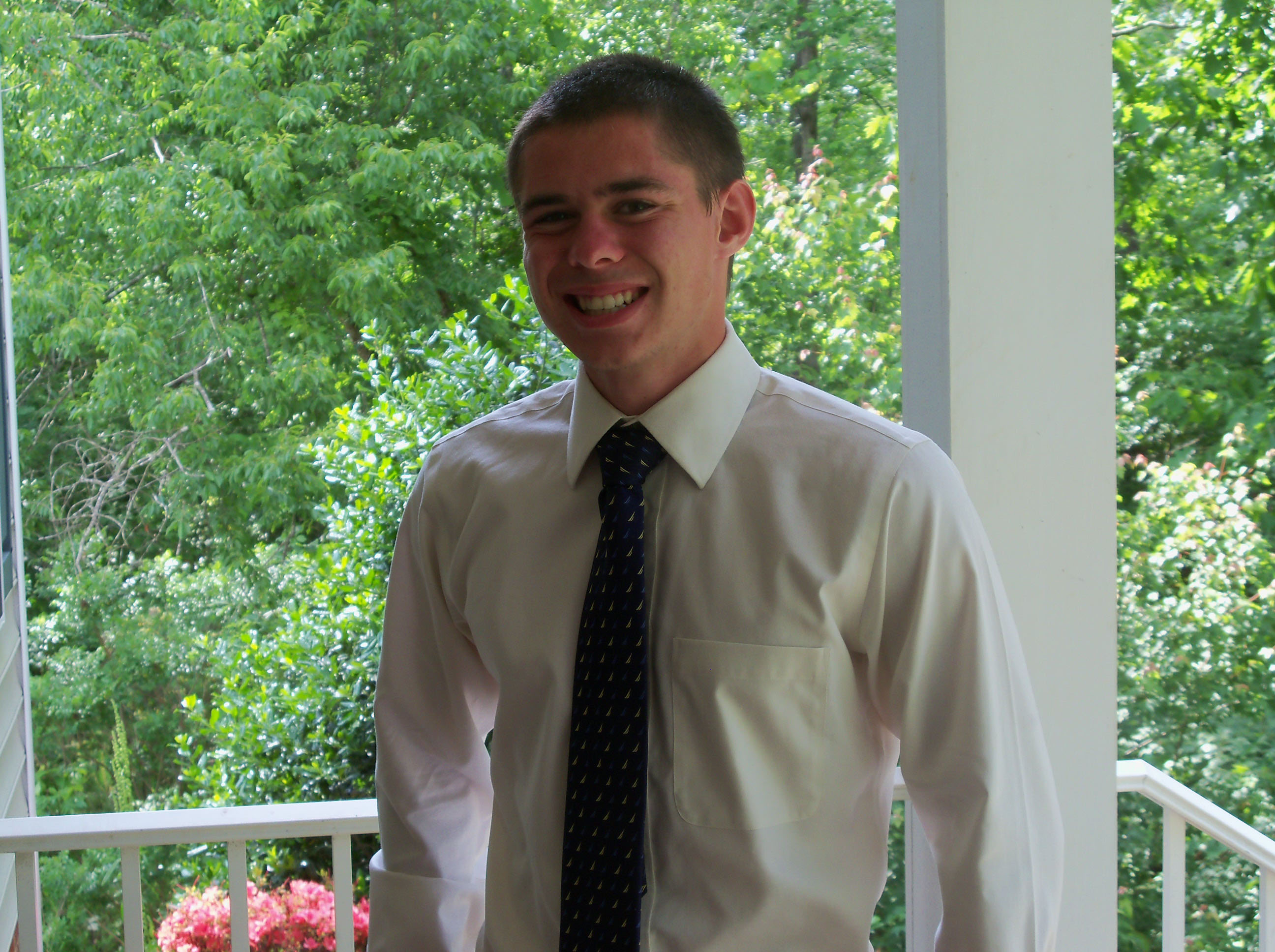January 31, 2012 — Adam Maguire, a first-year student in the University of Virginia's School of Engineering and Applied Science, and his classmates in "Introduction to Engineering" have built a prototype of a device that will enable people with limited or no use of their limbs to operate a computer using their tongues.
Funding for the project came from the National Industries for the Severely Handicapped, or NISH, along with Design in Engineering Education Division of the American Society for Engineering Education. Their Financial Assistance Program for Assistive Technology will allow the team to compete in the AbilityOne Network Design Challenge in April.
All students in Susan Donohue's "Introduction to Engineering" course are working on assistive designs as their major class project.
Maguire and his team – which includes fellow students Jenny Alt, Brian Castor, Griffin Shapiro and Ishan Zaman – based their project on the AbilityOne Network Design Challenge, founded by NISH to encourage development of creative technological solutions to workplace barriers facing people with disabilities.
Maguire's team took the additional step of entering the challenge and received $400 toward building a prototype. When completed, the device will be entered in April's national competition.
"We knew there were retinal scanners that operate computers by eye movement, but it's hard to do that and communicate at the same time," said Maguire, who is from Goochland. Straws that allow users to operate a computer by sucking or blowing are another option, but research at Georgia Tech involving use of the tongue to operate computers got Maguire thinking.
The tongue can be controlled by those with paralysis below the neck. While the Georgia Tech research implants magnets in the tongue, the U.Va. team's solution is an external device consisting of a track pad attached to a retainer similar to that worn by people with braces. A wire runs to a transmitter, which communicates with the computer.
"It's nonsurgical, so you can remove, update and clean it," Maguire said. He envisions the device helping those who are paraplegic, have lost limbs, or are suffering from degenerative diseases.
Donohue said she has incorporated the AbilityOne Challenge into her course for two years now, and it "really resonates with students."
"They all have personal experience and/or knowledge of physical challenges, from temporary to permanent, and they truly care about making a difference in the quality of people's lives," she said.
Plus, the projects are helping the students get hooked on engineering, she noted.
"As an engineering education researcher, I know the research on how to engage and encourage persistence in engineering studies, and the AbilityOne Challenge meets so many of the requirements: It's a service- and project-based hands-on activity that has the potential for involving several disciplines," she said.
Although this project incorporates electrical, computer and materials engineering, Maguire anticipates that he will major in civil and environmental engineering. He said he decided on engineering because the field "provides good job opportunities and allows me to make an impact on the world."
For now, Maguire is making an impact at U.Va. – literally. Surgery for a brain tumor last spring cost him an appointment to the U.S. Naval Academy, but he's glad to be at U.Va.
"It worked out great. I love Professor Donohue's class and I love U.Va.," he said.
Media Contact
Article Information
January 31, 2012
/content/first-year-engineering-team-creates-technology-disabled

